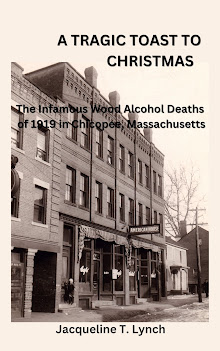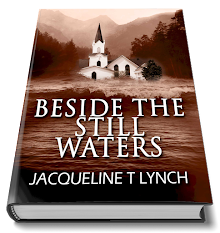
The second-largest St. Patrick’s Day parade in the United States will kick off this Sunday, pushed backed this year because of Easter. Holyoke, Massachusetts has held their parade since 1952. There are over 40,000 marchers, 30 floats, and 40 bands.
Past participants have included President John F. Kennedy, Senators, Congressmen, actors, military generals, sports figures and astronauts. There’s room along the curbside for you, too.
For more information on the parade, have a look at this official website.
Been there? Done that? Know a Colleen? Let us know.
Friday, March 28, 2008
Holyoke St. Patrick's Day Parade
Posted by
Jacqueline T. Lynch
at
7:27 AM
0
comments
![]()
Labels: 20th Century, 21st Century, entertainment, holidays, Massachusetts
Tuesday, March 25, 2008
Miss Bellows Falls Diner - Vermont

The Miss Bellows Falls Diner is on the National Register of Historic Places. There are a lot of historic places where you can’t get a turkey dinner for seven bucks. And it’s good, too.
This is one of those Worcester Lunch Car Company manufactured diners, built in the late 1920s, and moved to Bellows Falls, Vermont in the early 1940s. If you like your history with a side order of home fries, head off the highway and drop in on Bellows Falls.
For a complete menu and more info on the Miss Bellows Falls Diner, have a look at this website.
Been there? Done that? Had the roast beef? Let us know.
Posted by
Jacqueline T. Lynch
at
7:32 AM
0
comments
![]()
Labels: 20th Century, diners, Vermont
Friday, March 21, 2008
The Old Rugged Cross

As Easter approaches, here is the symbol of Christianity, the faith that began with a death by crucifixion. An ending, a Resurrection, a new beginning, a never-ending circle.
The stonecutter who carved this Celtic cross was an emigrant of Ireland. Leaving forever an impoverished, troubled land, he knew something about a personal resurrection when he arrived in the US and started over.
His new home became Chicopee, a factory town in Western Massachusetts, and that is where this cross stands in front of the Holy Name of Jesus Church. His name was Daniel A. Lynch, and the monument at his gravesite in the cemetery down the street is more simple, if quite as large. 
His sons took care of that; they were stonecutters, too. They kept his tools. They kept the faith. This cross from the 19th century remains.
Posted by
Jacqueline T. Lynch
at
7:44 AM
0
comments
![]()
Labels: 19th century, holidays, immigration, Massachusetts
Tuesday, March 18, 2008
Evacuation Day - Boston

Yesterday, March 17th, was St. Patrick’s Day just about everywhere, but in Boston it is also Evacuation Day, a rather bland name for a pinnacle event.
On March 17, 1776, the British forces under General Howe were forced to evacuate Boston after Americans under General George Washington occupied Dorchester Heights overlooking the city. With them overlooking the city were a whole lot of cannon dragged overland all the way from Ft. Ticonderoga in New York under the direction of General Henry Knox.
The British fleet headed for Halifax, Nova Scotia, with some 9,000 officers and men, and some 1,000 civilian loyalists. From the “Military Journal of the Revolutionary War” by a Dr. Thatcher, who was on staff as a surgeon with Washington’s army, we have the eyewitness account of the amazing day:
“Sunday morning, March 17th, when at an early hour it was perceived that the royal army commenced their embarkation on board of transports. In the course of the forenoon we enjoyed the unspeakable satisfaction of beholding their whole fleet under sail, wafting from our shores the dreadful scourge of war…By this event we are happily relieved of a force consisting of seven thousand five hundred and seventy-five regulars, exclusive of the staff, which, with the marines and sailors, may be estimated at about ten thousand in the whole…A considerable number of tories, who had joined the royal standard, took passage with their families on board of the transports with the army, and bade adieu to their native country, without knowing what part of the world is to be their destiny.”
We may wonder about the “Tories” and the new lives they lived up in Nova Scotia. Perhaps their descendents are the same people who send Boston an evergreen every year at Christmas to commemorate Boston’s aid to the people of Halifax in the tragic explosion there in 1917 that destroyed the city. That may be a topic for another day.
So would be the story of Henry Knox and his intrepid band of cannon-draggers, who left their mark across the length of the Bay State, where the Knox Trail is still marked out.
But Evacuation Day, despite it’s importance to Boston and to the eventual success for the Americans in the Revolutionary War was not officially celebrated by Boston until 1901, and was not declared a holiday in Suffolk County until 1938. We were busy at another party.
Posted by
Jacqueline T. Lynch
at
7:39 AM
0
comments
![]()
Labels: 18th Century, holidays, Massachusetts, Revolutionary War
Friday, March 14, 2008
The Flume - New Hampshire

New Hampshire’s Flume Gorge at Franconia Notch State Park takes you on a hike through granite halls, 19th century covered bridges, waterfalls and glacial boulders from the last ice age, and a wooden boardwalk that brings you up close in the gorge.
The Flume was discovered by a 93-year-old woman out fishing in 1808, so it shouldn’t be too much trouble for you to hike. As the spring comes upon us, and cabin fever drives us outdoors again, here is a great place to find that unique solace that nature offers.
For more on The Flume, have a look at this New Hampshire government website.
Been there? Done that? Brought your 93-year-old grandma? Let us know.
Posted by
Jacqueline T. Lynch
at
7:36 AM
0
comments
![]()
Labels: 19th century, geography, natural history, New Hampshire
Tuesday, March 11, 2008
Mary Had a Little Lamb - Edison's Greatest Hits

Last month two men were charged with setting a series of fires, including destroying by fire the birthplace of Mary Elizabeth Sawyer in the Massachusetts town of Sterling.
The house had been vacant, and most people have not ever heard of Mary Elizabeth Sawyer anyway, including probably these two alleged arsonists. But, any claim to fame is still a claim to fame, and you never know what’s going to make you famous in the sweeping eyes of history. Another lady named Sarah Josepha Hale, responsible for, among many contributions to 19th Century America, editing the venerable magazine Godey’s Lady’s Book, published a poem in 1830 about Mary Elizabeth Sawyer. It went like this:
Mary had a little lamb.
Its fleece was white as snow.
And everywhere that Mary went,
The lamb was sure to go.
You may have learned every verse in the old nursery rhyme as a child, but the claim to fame for Mary, who reportedly in real life did bring a lamb to school one day, causing a bit of a ruckus, is that this poem was the first ever sound recording made. When testing his new phonograph in 1877, inventor Thomas Edison recited the poem into his machine, which was etched into a tinfoil cylinder.
In August of 1927, to celebrate 50 years of the phonograph, Edison re-enacted this moment for the Fox Movietone newsreel cameras, and recited the poem, recording it again.
It may have not made the top of the charts, but then, maybe it did. There wasn’t a whole lot else you could download onto your MP3 in 1877.
Posted by
Jacqueline T. Lynch
at
7:28 AM
0
comments
![]()
Labels: 19th century, 21st Century, inventions, literature, Massachusetts
Friday, March 7, 2008
New England Islands

There are hundreds islands in New England, from as large as Nantucket to as small as Cormorant Rock off New London, Connecticut. Inhabited islands of year-round homes or summer cottages, and many uninhabited, left to the sea birds.
An old joke goes, “There was a terrible storm last week, and the ferries weren’t running. Those poor folks on the mainland were cut off for days.”
This photo showing US Mail boxes labeled “on island” and “off island” illustrates the line of demarcation in the island dweller’s hearts and minds. There is the island, and then there is everyplace else.
Been to Nantucket? Martha’s Vineyard? Block Island? Name the island of your choice, and let us know.
Posted by
Jacqueline T. Lynch
at
7:33 AM
2
comments
![]()
Labels: geography, New England
Tuesday, March 4, 2008
Molasses to Rum to Slaves

On March 2, 1807, Congress passed an act prohibiting the importation of slaves after January 1, 1808, two hundred years ago.
Rhode Island played a big role in the slave trade, the “triangle trade” which brought tens of thousands of slaves in Newport slave ships before the American Revolution. Between 1709 and 1807, Rhode Island merchants sponsored over 900 slave runs to Africa, a booming economic force.
Rum was its commodity, for which molasses and sugar were imported from the Caribbean, and rum was Rhode Island’s main export. The West Indies plantations which provided the molasses and sugar were dependent upon slaves to work them. Rhode Island slavers brought slaves from Africa to the West Indies, which sold the Rhode Islanders molasses and sugar, who sold rum to African colonial settlements, beating out French and English competitors in this endeavor.
It has been estimated that in the 18th Century, Rhode Island merchants were responsible for between 60 and 90 percent of African slave trade. By 1765, the Rhode Island economy had become dependent on the slave trade. Slaves that were not auctioned off were put to work and served aboard merchant ships. By 1807, African seamen made up over 20 percent of all Newport crews involved in the West Indian, European, and African trades. It was good business. Occasionally what is “good business” is morally bankrupt. It’s good to be on the lookout for that, lest we lose our souls among all that profit.
Posted by
Jacqueline T. Lynch
at
7:27 AM
0
comments
![]()
Labels: 19th century, Rhode Island








